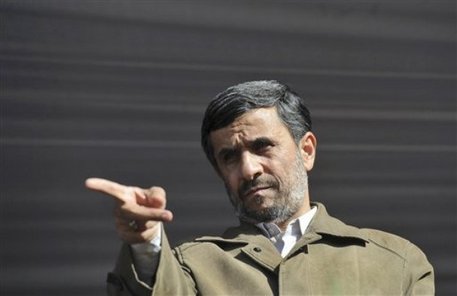Light at the End of the Tunnel? Where are Iran Sanctions Going?
 If there is one thing that politicians in Washington consistently agree on it is additional sanctions on Iran. In the past year there have been numerous sanctions issued against Iran. Those sanctions have been at least partially responsible for a rapid devaluation of Iran’s currency, the Rial. Many of the sanctions imposed in the past year have targeted Iran’s financial sector and impacted their ability to obtain foreign currency and find financial institutions willing to maintain correspondent banking relationships on behalf of Iranian banks. Of course, Iran is still selling oil, holding billions in foreign currencies, and working with foreign banks, however, the multilateral sanctions have taken their toll although the degree of their impact is disputed.
If there is one thing that politicians in Washington consistently agree on it is additional sanctions on Iran. In the past year there have been numerous sanctions issued against Iran. Those sanctions have been at least partially responsible for a rapid devaluation of Iran’s currency, the Rial. Many of the sanctions imposed in the past year have targeted Iran’s financial sector and impacted their ability to obtain foreign currency and find financial institutions willing to maintain correspondent banking relationships on behalf of Iranian banks. Of course, Iran is still selling oil, holding billions in foreign currencies, and working with foreign banks, however, the multilateral sanctions have taken their toll although the degree of their impact is disputed.
Indeed, reports are now coming out that Iran’s political calculus may be changing as a result of the increased pressure from sanctions. In a recent article by Ray Takeyh, of the Council on Foreign Relations, it is discussed that sanctions are “beginning to bear fruit” and that as a result negotiations with Iran and a deal on their nuclear program may be possible. There are other rumblings around the beltway that a future deal could be in the works. With a reported drop of nearly 70% in the value of the Rial in the last year, it would be no surprise if Iran did decide to come to the table.
Iran has repeatedly said that any deal over its disputed nuclear program would have to involve an easing of Western sanctions. The problem, however, is that it is not necessarily Iran’s alleged pursuit of nuclear capabilities that stands as the sole reason for imposition of sanctions. The U.S. has also cited support of terrorist organizations and human rights abuses as underlying causes for imposition of sanctions against Iran. Therefore, it is unclear what Iran will get in return for any reduction or dismantling of its nuclear program. Will it be a removal of recent financial restrictions, an easing of the comprehensive trade embargo imposed by the Clinton Administration in 1995, or perhaps just a mere promise to forego the imposition of additional sanctions? Further to the point, where do U.S. sanctions eventually stop? There seems to be consensus at least among attorneys working on sanctions issues that additional sanctions are mostly symbolic at this point as most Western firms and financial institutions have completely cut off transactions with Iran. So as we move into 2013 and the stand off with Iran concerning its disputed nuclear program continues, it is important to ask the question: do we know where we want sanctions to take us? And if so, do we know what to do with them once we get there?
The author of this blog is Erich Ferrari, an attorney specializing in OFAC matters. If you have any questions please contact him at 202-280-6370 or ferrari@ferrariassociatespc.com.


